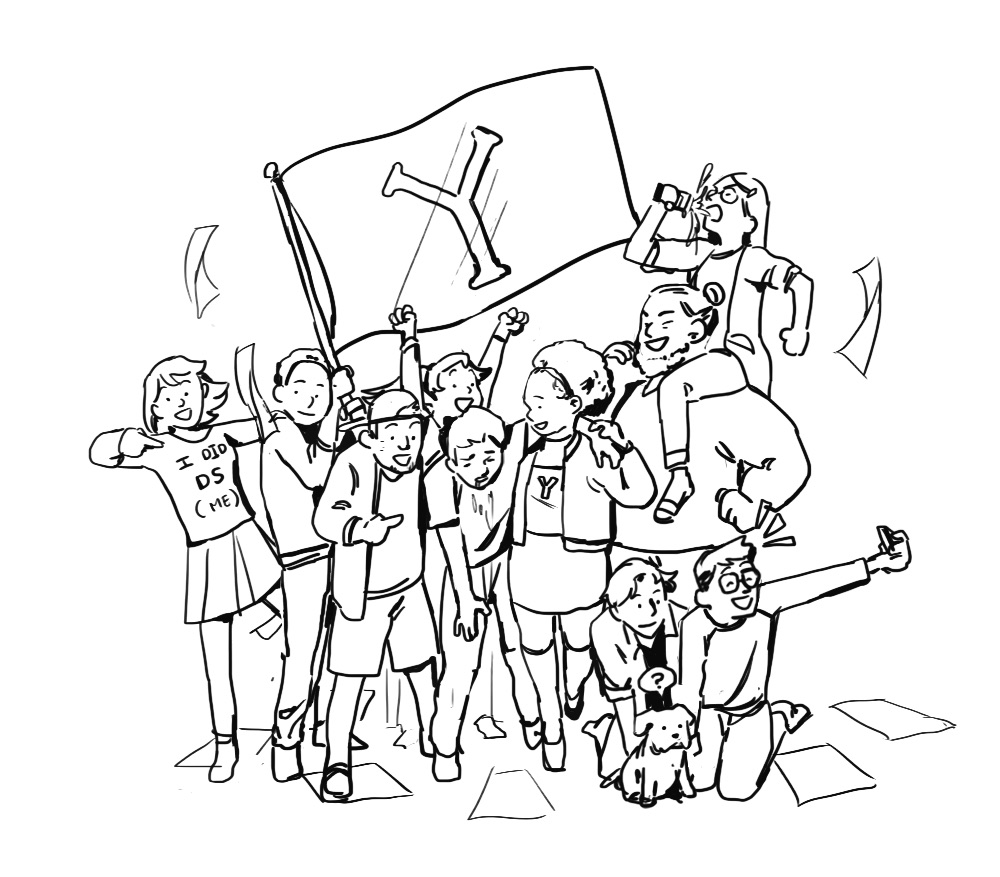
A few nights ago, a friend and I went for a long walk up Hillhouse, reveling in one of the last summer evenings before winter sets in. As we walked, our month of days and nights since coming back to Yale unspooled before us. We sifted through the pieces, hoping to find sense in the insanity, magic in the mess.
“It’s been disastrous,” I said.
“I think the word you’re looking for is cataclysmic,” he replied.
The word cataclysm implies violence, but I like the explosiveness; it conjures up something spectacular, a point of ignition. There’s always some cataclysm in coming back to Yale after a summer away. During the summer, there were wine-drunk nights walking the Seine, night trains through the Hungarian countryside, sleepy mornings watching Amsterdam wake up and backwards-baseball-cap-wearing musician who said beautiful things about the world.
Then, armed with all the epiphanies three months of wandering out on my own, it was time to face a place saturated with memories. I had expectations and resolutions, promises to be different in the face of a place that’s the same. I’m fascinated by the idea of returning because it asks the questions: Who were you last time? Who are you now?
I heard it in all my friends’ voices before we boarded our separate flights or trains back to New Haven: This time will be different. This time I won’t do this, I won’t say that. Invariably, we all did this and said that. Invariably, we had mornings where the person in the mirror was two years younger, and we felt absolutely nowhere. That’s the thing about coming back, we all trip up. Promises made over the summer dissipate and dissolve. You look around and don’t recognize the person whose hair grew out, the ones who got tanner or taller. People live in different houses and the paths you take through friendship and solitude remap themselves.
But the magic of this place is that it gives us four years to watch our adolescence turn into adulthood, tangible reminders of how we’ve changed around every corner and at the bottom of every cup of coffee. The places where things happen — restaurants where someone broke your heart, street corners where there were afternoon kisses, backyards where we’ve found and lost ourselves a thousand times every semester — become the geographies of our lives. I assign devastating amounts of significance to these geographies — there are whole cities I won’t visit — and more than any other place I’ve left and gone back to, Yale contains an infinitude of memories and old selves. But I’m always surprised at how clean Yale feels when I come back.
I think there’s a breathtaking amount of optimism in this; I have so much hope for life at Yale. Because the backyards and street corners have changed us before, we cling to the idea that they will do so again. It’s hard to go a day here without feeling pieces of identity shift into the right places, sometimes slipping into the wrong ones before we find our way back to a stronger sense of self.
Selfhood comes from our less elegant moments, and sometimes, there is a profound inelegance in coming back. We might think we’re reverting, that nothing’s changed, but it’s more complicated than that — we’re figuring out how we fit into this old place with our new versions of self. That’s the restlessness of coming back, all your old habits forcefully looked upon with whatever new light you’ve found over the summer.
My friend remarked that it feels like there’s something in the water here, forcing us to grapple with the very best and worst of ourselves on any given day. The other thing “cataclysm” implies is intensity, and the air is crackling these days. It’s always electric and often exhausting, and I think the reason I described the last month as “disastrous” is because I’ve felt lost for as many moments as I’ve been found.
But even if we didn’t change as much as we thought we did — even if we’re still reckless and messy and heartbroken — We’re here, right? We came back. We’re trying. Here’s to the cataclysm.
Ayla Besemer | ayla.besemer@yale.edu .







